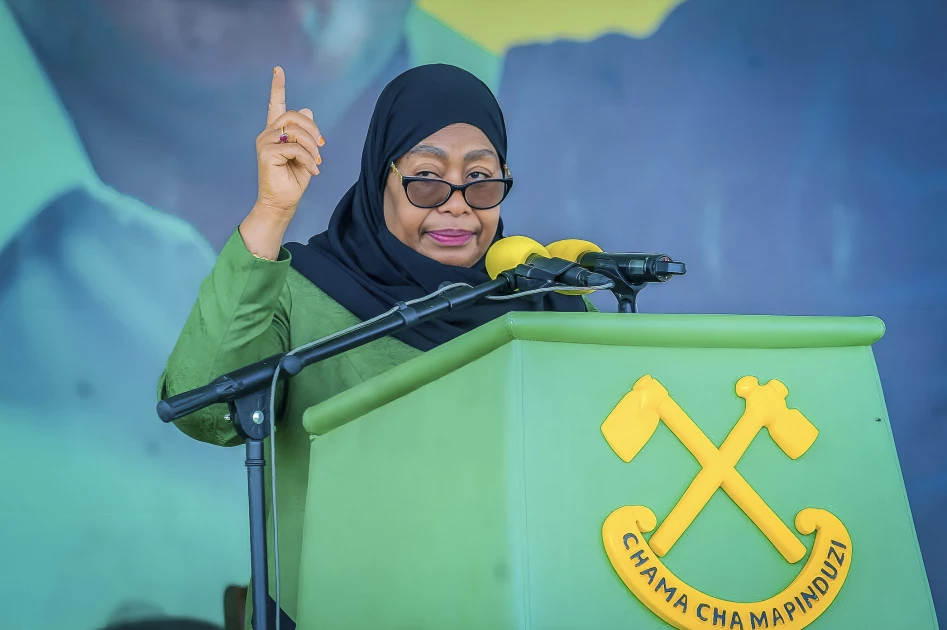Opposition rejects Tanzania poll results as international bodies voice concern

Tanzania’s ruling party Chama Cha Mapinduzi (CCM) presidential candidate and incumbent President Samia Suluhu Hassan delivers her remarks during the party's closing campaign rally in Mwanza on October 28, 2025. Photo by MICHAEL JAMSON / AFP

Audio By Vocalize
In its first public statement since the vote, CHADEMA — whose leader Tundu Lissu is currently on trial for treason — said the outcome denies citizens their right to choose their leaders.
The party further announced it does not recognize Samia Suluhu as president and appealed to the international community to do the same, insisting the results do not reflect the will of the people.
The disputed election has drawn widespread criticism from international organizations, with concerns mounting over reports of violence, internet shutdowns, and restrictions on opposition activities.
The Mo Ibrahim Foundation expressed deep dismay at what it described as an authoritarian turn under President Suluhu, likening her leadership to that of her predecessor, the late John Magufuli, who was accused of cracking down on dissent.
The Foundation condemned the reported banning of opposition parties from participating in the election,
the shutdown of the internet, and the use of live ammunition against demonstrators, many of them young people. It further stated that the outcome was neither fair nor legitimate, adding that the public anger witnessed in the streets was both understandable and expected.
Citing the ongoing conflict in Sudan as a warning, the Foundation urged Tanzania not to follow a similar path of instability, noting that “the sub-region is already home to unspeakable violence and human tragedy — one failed state is enough.”
In contrast, African Union Chairperson Mahmoud Ali Youssouf congratulated President Suluhu on her declared victory but expressed regret over the loss of lives during post-election protests.
In a statement issued by AU spokesperson Nuur Mohamud Sheekh, the continental body emphasized the importance of safeguarding fundamental rights and freedoms, including the right to peaceful assembly and freedom of expression, calling on Tanzanian authorities to ensure these rights are upheld.
The Council of the European Union also voiced serious concern over the situation, citing reports of post-election violence, an internet blackout, voting irregularities in several areas, and a high number of fatalities and injuries.
EU spokesperson Anouar El Anouni said such developments were “of extreme concern” and urged the Tanzanian government to immediately release detained politicians, guarantee fair trials for those arrested, and conduct swift and transparent investigations into reported abductions, disappearances, and acts of violence.
Prominent regional voices have joined the call for accountability, among them Kenyan opposition figure and PLP leader Martha Karua, who said the post-election protests have tested Tanzania’s long-standing stability.
She noted that the unrest mirrors a broader wave of youth-led demonstrations across East Africa, calling for transparency, justice, and good governance — movements that, she observed, swept through Kenya just a year earlier.


Leave a Comment